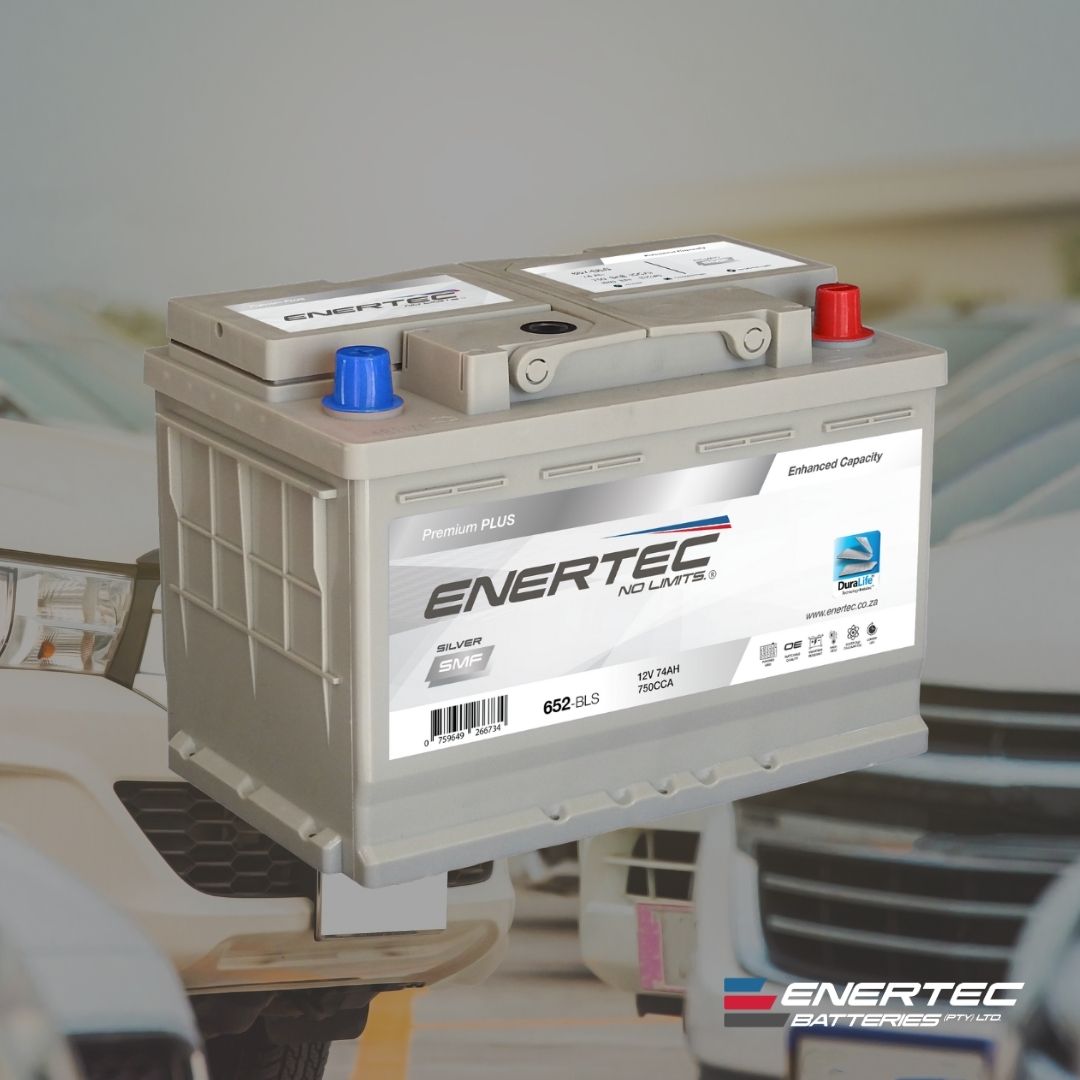2022-09-29 19:10:05
Why Lithium-ion is suited for the South African market
With the economic situation South Africa finds itself in, it may seem that the country would still have a long way to go towards expanding its lithium-ion market. Lithium-ion batteries are known as one of the most expensive batteries available, and yet they continue to become increasingly more popular as time goes on.
There are several reasons why this is the case. Firstly, South Africa finds itself with a uniquely challenging electrification problem. Amidst the growing struggles of Eskom, consumers and businesses need to find workable and reliable solutions to the electricity crisis so that they can continue with business and daily life.
With the growing push towards renewables from the international community, South Africa will also find itself having to keep up with global trends. The entire economic landscape is expected to change as global private sectors and governments undergo energy reforms and international climate agreements come into effect. So, while it is unclear to what extent this shift will affect developing economies, it is reasonable to assume that South Africa, as one of Africa’s largest economies, will still have a significant role to play in this.
Lithium-ion batteries are widely recognised as one of the most reliable battery technologies for several different uses. They have several advantages over other battery technologies such as lead-acid, making them the smarter investment over the long-term.
Because of this, they are ideally suited to back-up and energy storage installations for homes and businesses. As local players in the market open up even more avenues for increasingly innovative and cost-effective solutions in this technology, lithium-ion will become the battery technology of choice for energy storage in alternative power solutions.
The South African Electricity Crisis
South Africa has a critically constrained power system. Since 2010, the country has faced a steadily worsening situation, with current levels of demand far exceeding supply. There are several contributors to this problem, such as frequent power station breakdowns, maintenance issues, corruption, lack of infrastructure, as well as a growing copper cable theft problem.
Despite the government's promise to address these issues, it is unlikely that the energy crisis in South Africa will be resolved in the next 5-10 years.
The upcoming period is also anticipated to be globally transformative, with many developed countries shifting their electrification grid to renewable energy. This means that South Africa faces the double challenge of having to resolve its existing issues and modernise its power generation methods.
In 2020, the electricity generated from renewables amounted to about 10.5% of the South African national total, meaning that South Africa still has a long way to go towards moving away from coal-generated power.
While the government is self-constrained in rolling out major projects to address the energy crisis, the private sector will play a key role in transforming the electrification landscape over the coming years. One of the main setbacks in progress is the complicated legislation regarding Independent Power Producers (IPPs).
However, South Africans need not hold their breath for these changes. There are many solutions to address these challenges, with many households and businesses taking electricity availability into their own hands.
Lithium-ion technology has made back-up and energy storage solutions more viable as grid instability increases.
Lithium-ion is a buffer between power generation and consumption
When it comes to back-up and small-scale energy generation solutions, one of the most important aspects to consider is energy storage, which forms the gap between power generation and consumption.
When power is generated, not all of it is immediately used. Considering power generation solutions such as solar power, this becomes even more relevant. Solar power can only be generated during the day, and it is affected by other factors such as cloud coverage. Many other renewables are also affected by constraints.
Evidently, because power sources are not always available, and because it is wise to store excess power for future use, a reliable form of energy storage is a fundamental part of any back-up energy system.
Lithium-ion batteries are the gold standard for energy storage solutions, making them a sought-after choice for those with the budget to invest in them.
Lithium-ion batteries have many advantages
When it comes to energy storage, lithium-ion batteries are far superior to other battery types on the market currently, which makes them the battery of choice for energy storage and back-up applications.
They have a number of advantages over other battery types:
· High energy density
With a higher cell energy density, lithium-ion cells can be made smaller and more efficient than other cell chemistries. This allows for a more compact, lightweight battery, making them ideal for back-up installations with space limitations.
· Improved discharge and charge efficiency
These batteries perform significantly better than other battery technologies as they are discharged. Other battery technologies tend to experience increasing voltage drop over a cycle, leading to a steady decline in performance as the battery is drained.
With lithium-ion, no significant voltage drop is experienced until the battery has already discharged 80-90% of its capacity. This means that the performance of a lithium-ion battery will remain consistent until it has reached the end of the cycle and needs to be recharged. Lithium-ion batteries will typically also last longer than other battery types before they need to be recharged.
Lithium-ion batteries charge at nearly 100% efficiency, whereas technology such as lead-acid tends to only have an 85% charge efficiency. Because of this, there is much less energy wastage, allowing for faster recharge times.
· Lower maintenance requirements
Lithium-ion batteries do not require active maintenance such as water top-ups or battery conditioning like lead-acid batteries do. This makes them a lot easier to care for.
Although they do require some level of care and perform best at a range of charge between 50% and 80%, they are a lot more forgiving than other battery types. Many lithium-ion batteries come with a built-in Battery Management System (BMS), so they will be put to sleep if their charge drops too low, but this is a protective mechanism to ensure the battery’s longevity.
· Longer cycle life
Lithium-ion batteries typically get the most cycles out of any other battery type commonly on the market. With typical use, their lifespan would be around 500 cycles or 2-3 years. However, with the correct settings on the Battery Management System (BMS), proper cell alignment, and ambient temperature control, a lithium-ion battery could last decades.
· Higher cell voltage
Lithium-ion batteries can be made much smaller and more efficient due to the higher voltage of their individual cells. This allows for fewer cells required per unit, meaning that they can deliver the same amount of voltage as another battery type with fewer cells.
Despite their higher price point, these advantages make them cheaper in the long run, as they will cause fewer issues and have to be replaced less often.
Large lithium-ion battery packs are being used in home applications
As more innovative products hit the market, lithium-ion batteries are being snapped up by savvy homeowners keen to keep the lights on when load shedding hits.
One example of this is the i-G3N and Pylontech range stocked by Enertec, which consists of lithium battery expansion units that are stacked on top of each other or mounted to a wall to save space. This innovative design allows for system customisation according to a home’s energy storage needs.
Products such as the GT Powertank Hybrid all-in-one Energy Storage System consist of a lithium-ion battery pack and a hybrid inverter in one modular design, making it incredibly simple to install. The design is also incredibly sleek and compact, fitting into home and office spaces without the intrusive look of typical home back-up systems.
Lithium-ion battery packs also work incredibly well in solar installations, as they increase the efficiency and longevity of the system. Because a large solar installation is so costly, homeowners want to ensure that their system provides as much value for money as possible.
One of the biggest expenses in these projects is, of course, the battery pack, and so it makes sense to invest in the best possible technology from the beginning.
Lithium-Ion provides promising opportunities for more power generation & storage solutions
The most common renewable energy source is solar power. The South African solar energy market is currently booming amidst talk of ongoing electricity problems. Projections estimate a growth rate of anywhere between 8%, all the way to 30%. Suffice it to say, this market is showing no signs of slowing down.
This makes solar energy the ideal investment for anyone looking to reduce their reliance on the grid. With lithium-ion batteries being the perfect energy storage solution for photovoltaic systems, the opportunity to expand the lithium-ion market in South Africa cannot be overlooked.
With both the private and public sectors looking to invest in green energy in the future, there are further opportunities for lithium-ion batteries to be used alongside wind, wave, and biomass power generation.
With all these possibilities, there is every reason for consumers and businesses to be proactive despite the looming electricity crisis. In fact, the sooner the economy moves to self-sufficiency with regards to electrification, the sooner costs will be able to be recovered.
With a standard solar installation, costs can be recovered anywhere between 3 and 12 years. When looking at the long-term prospects for the recovery of the electricity grid in South Africa, it makes sense to invest in alternatives as soon as possible.
The electricity crisis will no doubt continue to mould and shape the expansion into alternative technologies, and lithium-ion technology will not be excluded from this. At Enertec Batteries, we recognise the important role that distributors of energy storage products play in South Africa during this critical time. Enertec prides itself in being a knowledge-based distributor of high-quality energy solutions.
For more information on our product range, visit our website or reach out to us here. We look forward to helping you find your ideal energy solution.



